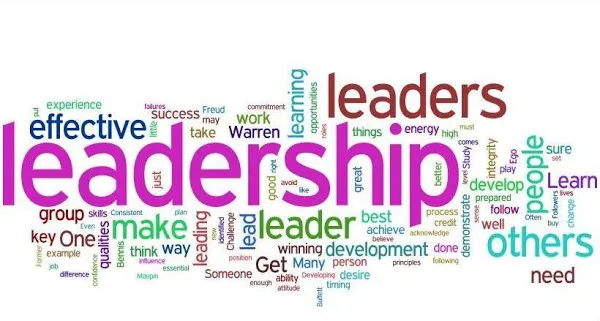
In a world full of constant change and uncertainty, leaders play an integral role in guiding individuals and organizations toward success. But what exactly distinguishes a good leader from the rest? Is it their ability to inspire and motivate others? Or perhaps it is their exceptional decision-making skills during challenging times? The qualities of a good leader are multifaceted, encompassing traits such as integrity, empathy, resilience, and effective communication. In this article, we will delve into these essential qualities that not only make leaders stand out but also contribute to their ability to create lasting impact and drive positive change. Whether you aspire to be a leader or simply want to understand what makes one great, join us in exploring the key attributes that define exceptional leadership.
Having A Well-Defined Purpose And Direction
A good leader possesses a clear vision, having a well-defined purpose and direction that guides their decisions and actions. A clear vision allows leaders to communicate effectively with their team, ensuring everyone is working towards the same goal. It provides clarity in times of ambiguity and uncertainty, giving teams something to anchor themselves to during challenging situations. Additionally, a clear vision inspires and motivates others by painting a compelling picture of the future and showing how their contributions align with the overarching purpose.
Having a well-defined purpose and direction also helps leaders make tough decisions more easily. When faced with difficult choices, leaders can refer back to their vision to assess which option supports or detracts from it. This enables them to stay focused on long-term outcomes rather than getting stuck in short-term gains or losses. Moreover, a clear vision fosters resilience in leaders as it gives them the strength to overcome obstacles along the way. With a defined purpose, they can adapt strategies when necessary but never lose sight of their ultimate destination.

The Ability To Effectively Convey Ideas And Instructions
Strong communication skills are one of the most essential qualities of a good leader. When a leader is able to effectively convey their ideas and instructions, it creates a clear path for their team to follow. This not only ensures that everyone is on the same page but also increases productivity and efficiency. Additionally, strong communication skills allow leaders to build trust and strong relationships with their team members.
Furthermore, effective communication goes beyond just being able to express oneself clearly. It also involves actively listening and understanding others’ perspectives and needs. A good leader understands the importance of fostering open lines of communication where team members feel comfortable discussing any concerns or ideas they may have. By creating this culture of open dialogue, leaders can create an environment that encourages innovation and problem-solving.
Empathy And Emotional Intelligence:
Empathy and emotional intelligence are crucial qualities for any good leader to possess. Empathy allows leaders to put themselves in the shoes of their team members, understanding their emotions, perspectives, and needs. It is a powerful tool that fosters trust and facilitates effective communication within a team. When a leader shows empathy towards their team members, it creates a safe and supportive environment where individuals feel heard and valued.
Emotional intelligence goes hand in hand with empathy as it involves recognizing, understanding, and managing one’s own emotions as well as those of others. Leaders with high emotional intelligence can grasp the underlying reasons behind others’ feelings and behaviors, allowing them to respond appropriately in various situations. This skill enables leaders to connect on a deeper level with their team members, building strong relationships based on mutual respect and understanding.
Making Confident Decisions In A Timely Manner
Decisiveness: Making confident decisions in a timely manner is a crucial quality of a good leader. In today’s fast-paced world, being decisive is no longer just an advantage; it has become a necessity. A leader who can make quick and well-thought-out decisions inspires confidence among their team members and keeps things moving forward.
Decisiveness is not about making impulsive choices or acting on gut instincts alone. It requires careful analysis, weighing pros and cons, considering different perspectives, and gathering as much information as possible in a limited time frame. Being decisive means having the ability to synthesize complex information quickly and accurately to arrive at the best possible solution.
Honesty And Integrity:
Honesty and integrity are crucial qualities for any good leader to possess. When a leader is transparent and trustworthy, they create an environment of open communication and foster trust amongst their team members. This allows for better teamwork, collaboration, and overall productivity.
Being honest means being upfront with your team members about expectations, challenges, and successes. By being transparent about the goals of the team or organization, leaders can gain the trust and respect of their employees. This trust enables individuals to feel comfortable sharing their ideas, concerns, or even mistakes without fear of judgment or reprisal.
Integrity goes hand in hand with honesty. It means consistently acting according to one’s values and principles regardless of external pressures or temptations. Leaders with integrity build a reputation as reliable individuals who can be counted on to do what they say they will do. This not only inspires confidence among team members but also creates a culture where accountability is valued.
Being Open To Change And Willing To Learn
Adaptability is a crucial quality for any leader to possess. In today’s fast-paced and ever-changing world, being open to change and willing to learn are essential in order to stay ahead of the curve. Leaders who are adaptable are not only able to easily embrace new ideas and technologies, but they also have the ability to inspire their team members to do the same.
- One of the benefits of adaptability is that it allows leaders to respond more effectively to unexpected challenges. The ability to quickly assess a situation, adjust strategies, and find innovative solutions can make all the difference in navigating uncertain times. Moreover, by setting an example of adaptability, leaders encourage their teams to adopt a growth mindset as well. When team members see their leader embracing change with enthusiasm, they become more receptive and willing to explore new possibilities themselves.
- Another aspect of adaptability that sets good leaders apart is their willingness to learn from others. While leaders may already possess knowledge and expertise in certain areas, they understand that there is always room for growth and improvement. They actively seek out diverse perspectives and input from others on their team or within their industry. By doing so, they not only gain valuable insights but also foster a culture of collaboration and continuous learning within their organization.
Conclusion:
In conclusion, the qualities of a good leader are not only desirable, but absolutely essential for success in any endeavor. One of the key qualities is the ability to communicate effectively. A leader who can articulate their vision and ideas clearly will be able to inspire and motivate others to work towards a common goal. Without strong communication skills, misunderstandings can occur, leading to confusion and disengagement among team members.
Additionally, good leaders must possess the ability to make tough decisions. In times of uncertainty or adversity, it is crucial for a leader to remain calm and confident in order to guide their team through challenging situations. Making difficult choices may not always be popular, but a good leader understands that their decisions are based on what is best for the overall success of the team or organization.
Lastly, a good leader exhibits emotional intelligence. This means being aware of one’s own emotions as well as understanding and empathizing with others’ feelings. Leaders with high emotional intelligence are more likely to foster positive relationships and create a supportive work environment where everyone feels valued.
In summary, possessing these qualities is not enough; they must be actively demonstrated in order for true leadership potential to be realized.
Also Read: Unveiling The Hidden Secrets Of On-Page Optimization For SEO Success





